This is a tale of two cities – and two babies. And, as in the famous Dickens book, it depicts the best of times and the worst of times.
The worst of times seems to always be right now in Haiti. And right now the streets are emptied by fear. Gangs control the traffic, the economy, even the flow of critical goods like fuel.
With disillusion aimed at the current minimal (and totally ineffective) government, the populace has revolted. They protest, knock down telephone poles, burn tires, throw rocks. Life comes to a standstill. People can’t work. Can’t travel. Can’t go to school.
But children are always born, and children must be cared for. An orphanage like ours lacks the ability to shut down, close shop, tell everyone “we will contact you when things get better.”
The same goes for two very young children who have come into our care. The first is an infant named Nadie, whom I have written about before. The second is a one-year-old boy named Marvens, who was brought to us just recently, about a month after Nadie arrived.
Both of them are battling against physical challenges directly related to the poverty in Haiti.
One is luckier than the other.
The spring of hope
The lucky one, Nadie, didn’t start out so lucky. Nadie was brought to us at six months of age barely weighing seven pounds. “She has had nothing to eat but sugar water,” the mother told us, explaining she was not capable of breast feeding due to a chest injury.
Alarmed and shocked at the sight of this emaciated child, we quickly took her to the hospital, where it was confirmed that she was severely malnourished, anemic, and suffering from conjunctivitis. Her life hung in the balance.
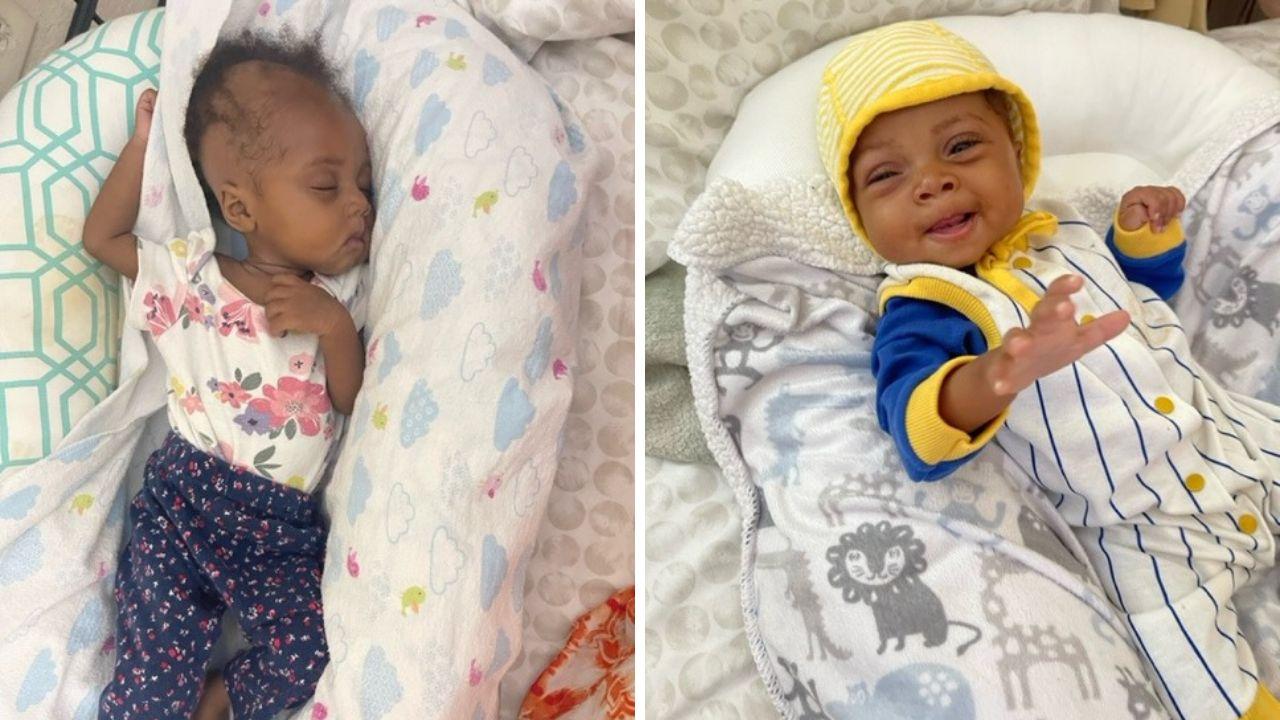
Nadie when she first arrived, left; As her health began to improve, right |
But thanks to quick help from the U.S. embassy, we were able to get her a passport to come to the U.S. to get healthy. Since her arrival, the word “thrive” is too small for Nadie. She has gained weight rapidly, currently at 13 pounds, twice was she weighed when she arrived just two months ago. The anemia is gone. The conjunctivitis is gone. Her blood test numbers have been fantastic.
She has been seen, thanks to the kindness of physicians in Michigan, by a neurologist, an ENT specialist, two childhood development experts, and a pediatrician who dotes on her care and has arranged vaccines and tests of all different kinds.
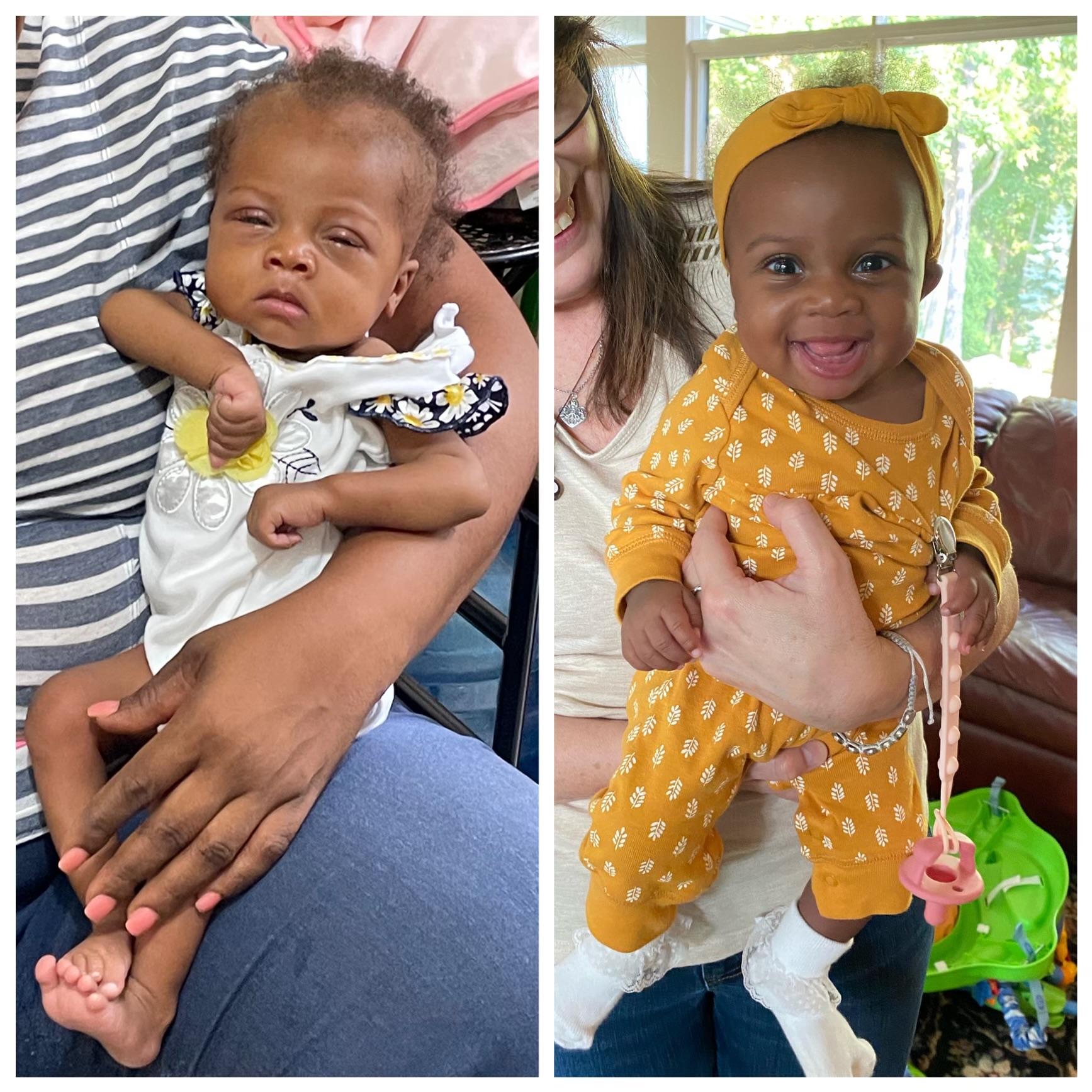
Nadie, before and after |
Thanks to our friends, family and staff, Nadie never goes a minute without attention. She is the bright light of the household, and has gone from an inert infant to bouncing, flipping, sitting on her own and holding her own bottle. She is flush with clean clothes, warmed bottles, a pack and play, and lots of shaky, rattling toys to stimulate her attention.
She will remain here, in the soothing nest of growth, for a few more months.
She is in the right place.
The winter of despair
Now let’s consider Marvens. He is from Croix-des-Bouquets, one of the most violent, gang infested areas in all of Haiti. Already, at one year of age, Marvens has paid the price for his geography. His father was shot and killed by a stray bullet while lying in bed.
Soon Marvens and his mother were homeless. She had no food or water. She wandered the streets with the baby and her older daughter, Pouchaline, who is 3.
When she came to us, we could tell Marvens was not well. He was fairly limp in her arms. He coughed. The pants he had been wearing slipped off his tiny waist. He had no underwear.
With the streets already nearly impassable, we somehow managed to get the two of them to a nearby hospital. They admitted Marvens immediately and kept him overnight.
The next day we were given the news: he has tuberculosis.
Now we are blessed to rarely hear those words in America. Modern medicine and vaccines have diminished TB down to around two cases for every 100,000 people. But in Haiti, it remains a real threat. And Marvens, it turns out, never got a TB vaccine.
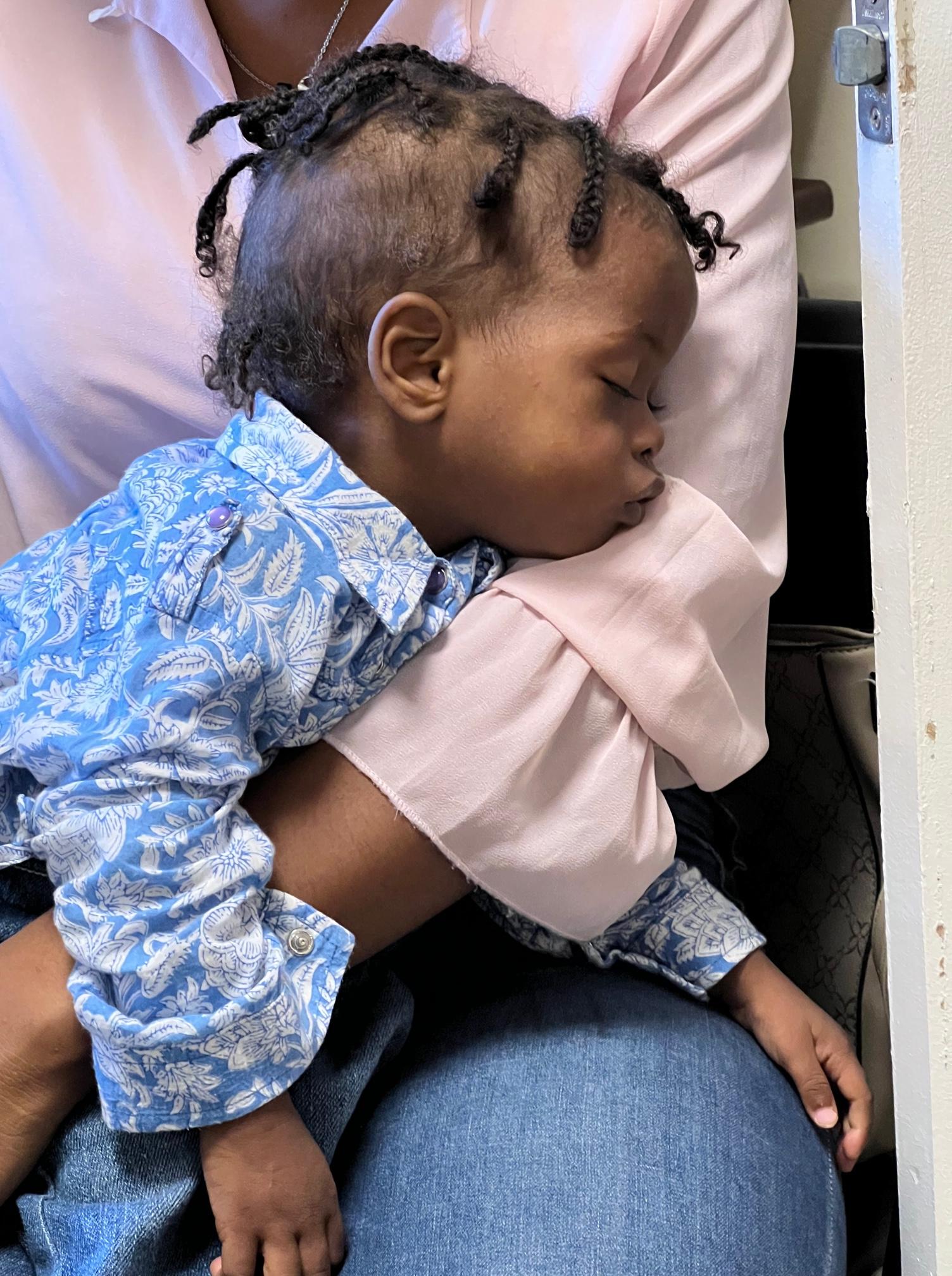
Marvens when we first arrived |
“So when do they start treating him?” I asked Yonel. “And how much will it cost us?”
“I don’t know,” he said. “They said they can’t treat him there, we have to take him to another hospital to get the medicine.”
“What? The hospital doesn’t have TB medicine?”
“No. Only the other one.”
As crazy as that sounds, what followed is worse. Because of the protests and gang violence, it quickly became impossible to get to the other hospital. Marvens and his mother remained cooped up in a room, with no treatment for his disease.
Then, days later, we received a call from the first hospital saying we needed to come and get Marvens and his mother, because they were closing down due to the violence.
“They say none of the staff can get there,” Yonel relayed. “We have to pick the baby up.”
“And what are we supposed to do with a baby with tuberculosis at an orphanage? It’s hugely contagious.”
“They don’t care. They just want us to pick him up.”
Everything and nothing before us
If this sounds crazy, that’s because it is. But it is not unusual. The roundabout, ricochet pattern of medical care in Haiti is often this way.
Had Marvens been in America, we could have this addressed promptly. Instead, he stayed in a hot, airless room in that hospital, crammed in with many others, for more than a week before we could get him. We eventually were able to bring his mother and him to our old property and put them in an isolated room. We needed to buy food, water, clothes just to sustain them minimally.
And still it took days and days before the hospital with the medicine for TB was actually open.
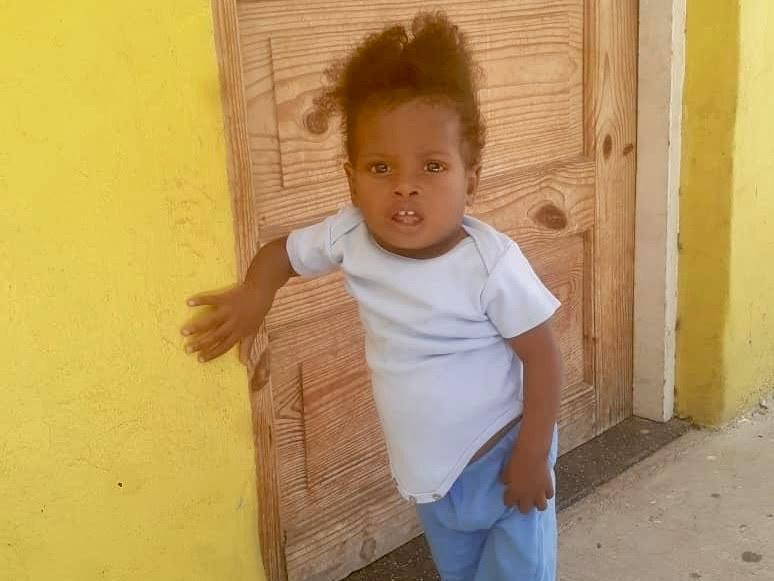
Marvens, at the old property |
Little Marvens is taking that medicine now, and we are praying for a recovery. But we can’t get him to any doctors to find out. And of course he and his mother remain isolated from the population.
As for bringing Marvens to the US for treatment? Forget that. Once a baby has been exposed to tuberculosis, the immigration laws make it nearly impossible. Even if we could get the paperwork.
I look at little Marvens’ situation, and I look at Nadie’s, and I wonder, how can this be? Simply by dint of geography, two babies from the same country must battle different poverty outcomes with such different success.
It is the best of times, it is the worst of times. And so much of it depends on where you are. It doesn’t seem fair.
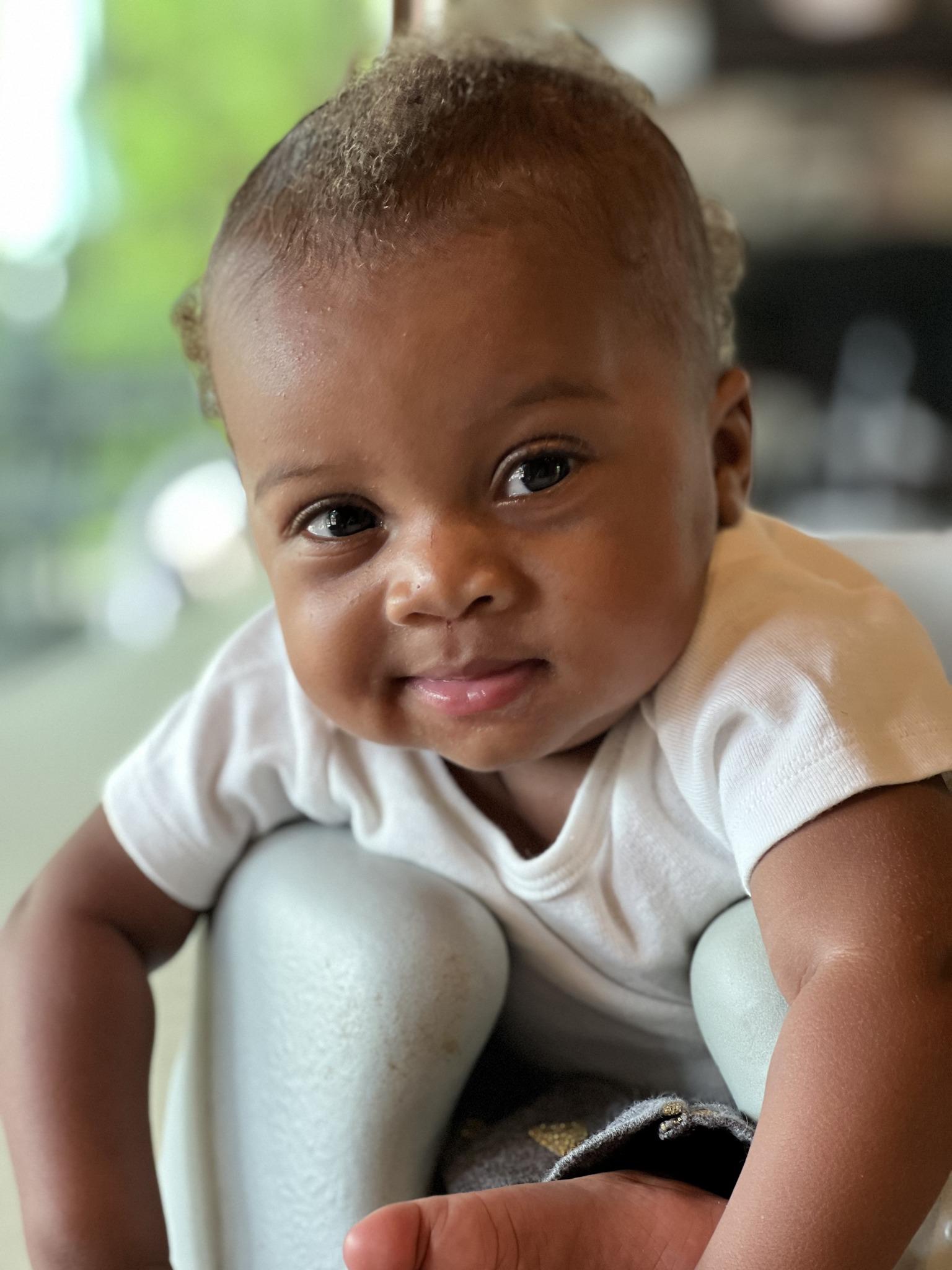
Nadie on her way to health |
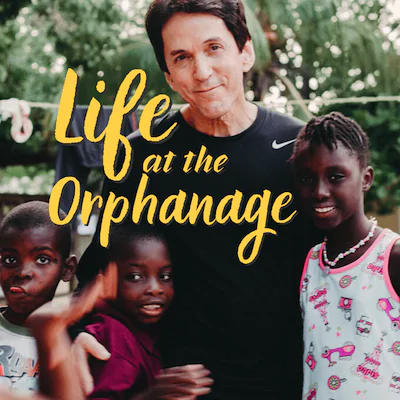
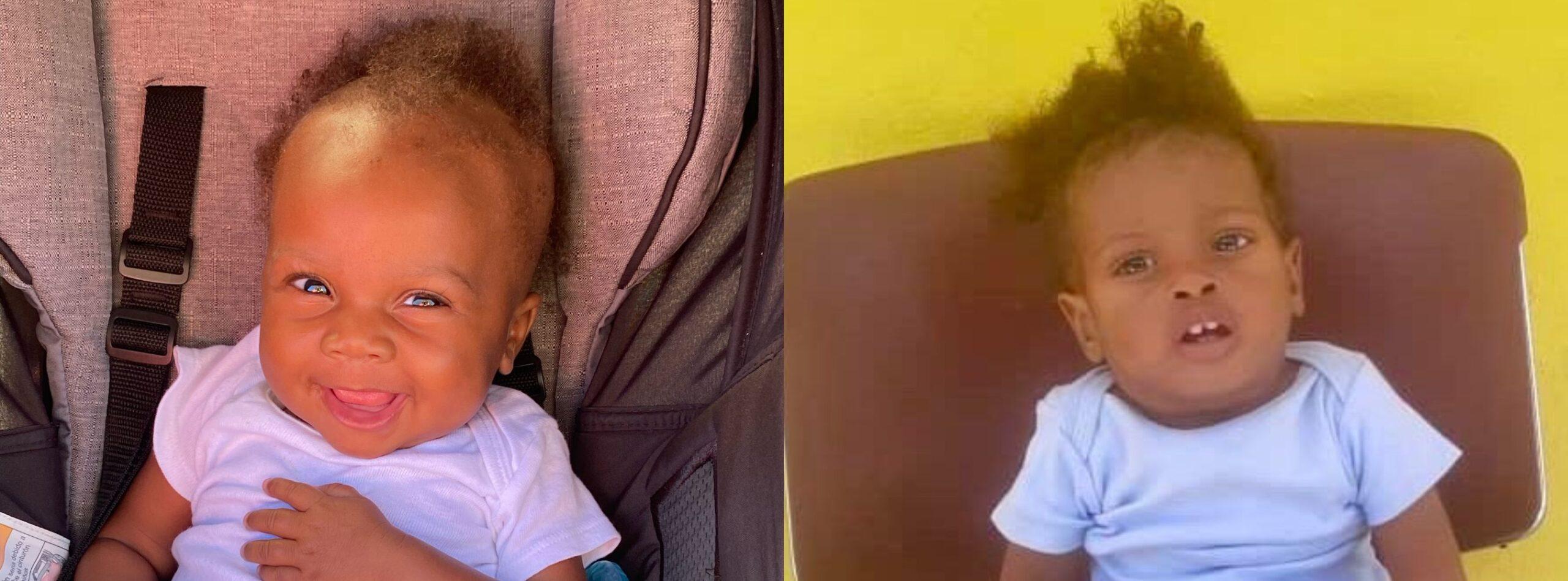

 Join a community of monthly donors
Join a community of monthly donors
0 Comments